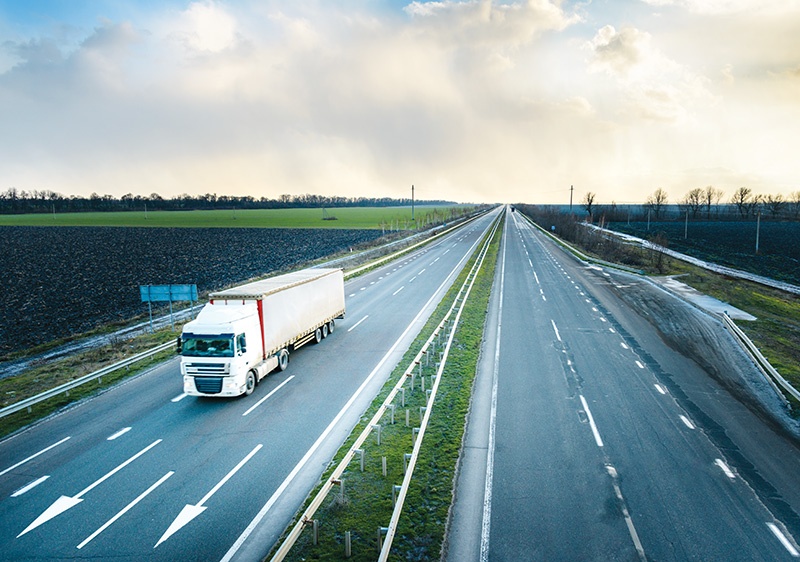Logistics groups dizzy with record highs in gasoline prices
 |
| The high prices are affecting transport, logistics, shippers, and individual households, Photo: Shutterstock |
Vu Anh Tuan, director of Project Shipping Transport Co., Ltd., told VIR that he has been tormented by the soaring selling price of oil in the country recent days, forcing him to adjust the freight cost for transport services. As a result, almost all partners are complaining about the
adjustment.
“When the selling price declines, customers immediately ask logistics and transport enterprises to lower freight costs. However, in contrast, enterprises tiptoe to increase these costs,” Tuan said.
“Compared to a year ago, the average selling price of oil and petroleum rose by VND10,000 (44 US cents) per litre. As a result, carriers have to pay an additional VND100 million ($4,350) to fill up shipping tanks,” he added.
The retail prices of RON95 bio-fuel and E5RON92 both have increased to around $1.12 per litre and $1.06 per litre, respectively. The prices of diesel 0.05S and kerosene have also risen by several cents. The fuel price rise matched the market expectation and was in line with global oil prices.
In global markets last week, Brent crude futures increased to $94.44 a barrel while US West Texas Intermediate crude rose 3.6 per cent to $93.10 a barrel. Both benchmarks touched their highest level since 2014 due to fears of intervention in Ukraine by Russia and concerns over tight global crude supplies as demand recovers post-pandemic.
In a note to its clients, Goldman Sachs analysts predicted Brent crude to top $100 per barrel in the third quarter.
In the domestic market, the gasoline price has increased by as much as 50 per cent since February last year and 9 per cent this year so far.
According to Tuan of Project Shipping Transport, if carriers provide both international and domestic shipping services, they will suffer less damage compared to providing only domestic services because the international ocean freight costs still stand at a high level, which will offset the loss.
Bui Ngoc Quang, director of Quang Phat Co., Ltd., said that it is an extremely difficult time for domestic transport enterprises because this sector has raised hopes for recovery. However, fuel cost rises will be a barrier to true recovery.
“In general, the fuel cost makes up 35 per cent of the freight cost. When the average price of oil and petroleum goes up by around 7 US cents per litre, the ratio will increase by around 50 per cent. The problem is that enterprises cannot immediately adjust the freight cost because the costs were regulated in contracts. Besides that, other costs such as COVID-19 testing and warehouse fees are also rising. Thus, suffering losses is understandable,” Quang said.
Nguyen Tuong, who is a senior advisor at the Vietnam Logistics Business Association, said that the adjustment of tariffs and fees, which make up around 42-43 per cent of the prices of the gasoline, will be an effective solution to limit the impact on logistics and transport enterprises in the context the price stabilisation fund is exhausted.
Tuong said that in normal times when the selling price of gasoline increases, both the Ministry of Finance and the Ministry of Industry and Trade will pump some money into the price stabilisation fund, and that gasoline traders will also use their funds to subsidise these products.
However, as of October last year, Vietnam National Petroleum Group’s fund was in the red at nearly -$11.4 million, and PetroVietnam Oil Corporation’s fund was sitting down at around -$30.43 million.
What the stars mean:
★ Poor ★ ★ Promising ★★★ Good ★★★★ Very good ★★★★★ Exceptional
Related Contents
Latest News
More News
- Businesses bouncing back after turbulent year (February 27, 2026 | 16:42)
- PM outlines new tasks for healthcare sector (February 25, 2026 | 16:00)
- Ho Chi Minh City launches plan for innovation and digital transformation (February 25, 2026 | 09:00)
- Vietnam sets ambitious dairy growth targets (February 24, 2026 | 18:00)
- Masan Consumer names new deputy CEO to drive foods and beverages growth (February 23, 2026 | 20:52)
- Myriad risks ahead, but ones Vietnam can confront (February 20, 2026 | 15:02)
- Vietnam making the leap into AI and semiconductors (February 20, 2026 | 09:37)
- Funding must be activated for semiconductor success (February 20, 2026 | 09:20)
- Resilience as new benchmark for smarter infrastructure (February 19, 2026 | 20:35)
- A golden time to shine within ASEAN (February 19, 2026 | 20:22)

 Tag:
Tag:



















 Mobile Version
Mobile Version